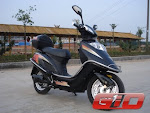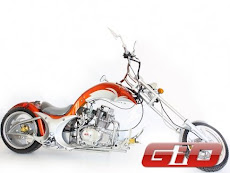SiGNa’s fuel-cell powered electric bike will run for 60 miles on a single charge. More impressive is that it runs on water.
The bike itself is really just a showcase for the fuel-cell tech from the energy company. The cells uses sodium silicide in the form of a sand-like powder. Add this to water and it “instantly creates hydrogen gas.” This hydrogen is then used to generate electricity. Because no hydrogen is stored, the cells are safe, and excess electricity is stored in batteries for an extra boost when you get to a hill. The cartridges are hot-swappable and are fully recyclable.
The main advantage (apart from the safety aspect) is that you can just swap-in a new cartridge when you need it, instead of having to stop to recharge (the units weigh around 1.5-pounds each, less than most batteries). You also get better range: a battery-powered bike typically gets 20 to 30-miles on a charge. The downside is infrastructure: you can find a power-outlet pretty much anywhere in the world. Try finding a compatible fuel-cell in a backwater general-store.
The current units can be designed to put out anything from 1-Watt to 1-Kilowatt. Their futire is probably not in electric bikes but in bigger transportation. Imagine driving your car into the gas-station, popping the hood and swapping in a fuel-cell, just Like Doc Brown drops a tube of plutonium into his time-traveling DeLorean.
Pre-orders for the cells are being taken by SiGNa. For a bike, you’ll probably have a long wait. Full, technical press release below.
Produce High-Pressure Hydrogen From Water [SiGNa. Thanks, Mike!]
















